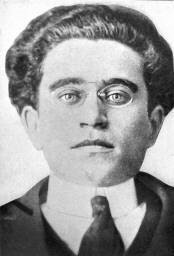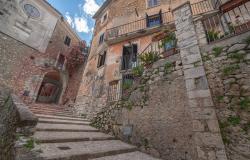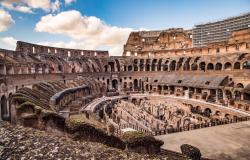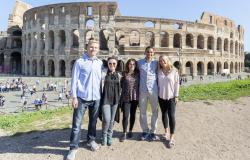The renowned Marxist thinker and founder of Italy's Communist Party, Antonio Gramsci, rediscovered his Catholic faith on his deathbed, a former Vatican official claimed Tuesday.
Luigi De Magistris, the former head of the Apostolic Penitentiary Tribunal, said Gramsci found God again just before he died in a Rome clinic in 1937 at the age of 46.
''Gramsci died having taken the sacraments. He returned to the faith of his childhood,'' De Magistris said.
''During his final illness, the nuns in the clinic where he was staying brought an image of the Baby Jesus to the patients to kiss. They didn't bring it to Gramsci. He said, 'Why didn't you bring it to me?' so then they did, and Gramsci kissed it''.
But the president of the Gramsci Foundation Institute, Italian philosopher Beppe Vacca, expressed some doubts over De Magistris' claims.
''There are many published and unpublished documents on the final hours and the death of Antonio Gramsci, and the theory of his conversion does not emerge from a single one,'' Vacca said.
He added that no trace of Gramsci's conversion were found in the letters of his Russian sister-in-law, Tatiana Schucht, who wrote ''with great regularity'' to his family in Moscow about Gramsci's last days.
''These were intimate family letters in which an event of such importance would have come out,'' Vacca said.
A letter from Gramsci's brother Carlo to Communist Party leader Palmiro Togliatti expressing Gramsci's desire to be cremated also failed to mention the conversion, he added.
However, Vacca said that this was not the first time he had heard suggestions that Gramsci had rediscovered religion, noting that a nun who knew him had made similar claims several decades after his death.
''I wouldn't find it at all scandalous, I'm just saying that there is no documentation to support it,'' he added.
A writer, philosopher and politician, Gramsci helped found the Communist Party in 1921 and was imprisoned in 1926 by Benito Mussolini's Fascist regime.
Gramsci had suffered from ill-health since childhood and his condition worsened in jail, eventually leading to his release after a decade behind bars.
He died shortly afterwards from a cerebral haemorrhage and was buried in Rome's so-called Protestant, or non-Catholic, cemetery.










